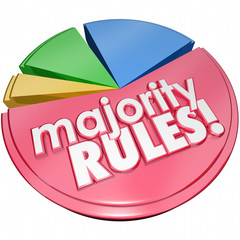Black American minority rights discrimination

Budgets for public school districts may be tied to local property taxes in several states. All public schools should be funded according to national norms, according to the Special Rapporteur. The achievement and performance of students are directly correlated with the use of native languages of indigenous and minority children as the medium of instruction in schools [3-5].
The Special Rapporteur was made aware of disparities in the sentencing and incarceration rates for minorities in the US criminal justice system. The cash bail system disproportionately affects minorities, especially Blacks and Hispanics. To put an end to such tactics, racial profiling must be outlawed [6, 7].
The COVID-19 outbreak and increasing anti-Asian prejudice in the US provided the context for the shooting rampage. The algorithms on some social media platforms encourage prejudice, discrimination, and incorrect information. The government must adopt legislation against hatred and crime in line with other democracies like Austria, Germany, the United Kingdom, and the European Union [8, 9].
International human rights treaties outlaw discrimination based on religion or belief, but domestic legislation does not always properly protect against it. Minorities, particularly Muslims and others of Arab or South Asian descent, suffered greatly as a result of the Patriot Act after 9/11. The Department of Justice has issued guidelines on profiling, but neither they nor the border are covered by them [10, 11].
There are no equal representation or participation rights in politics in the Commonwealth of Puerto Rico. In overseas territories, individuals of linguistic, religious, and ethnolinguistic minorities make up the majority of the population. The fact that they are indigenous peoples with rights to self-determination is also recognized. There are still dated political and legal practices from a time when non-White minorities were frequently considered as second-class citizens [12, 13]
Strong testimonies from Guam and Vieques, Puerto Rico, showed the disparities in health, standard of life, academic achievement, and social effects. Major environmental hazards and toxins, such as those that impair drinking water aquifers, typically expose minorities disproportionately. Especially in places where individuals of African heritage dwell, the most polluting industrial facilities are more likely to be found in underdeveloped and underrepresented communities [14, 15].
Generally, the cash bail system disproportionately affects minorities, especially Blacks and Hispanics. Industrial facilities that emit the greatest pollution are more likely to be found in underdeveloped and underrepresented areas. Particularly in locations where people of African origin live, pollution is a major problem.
REFFERANCE
[1] A. M. Thernstrom, Whose votes count?: Affirmative action and minority voting rights. Harvard University Press, 1987.
[2] D. Bell, Silent covenants: Brown v. Board of Education and the unfulfilled hopes for racial reform. Oxford University Press, 2004.
[3] J. Oakes, “Multiplying inequalities: The effects of race, social class, and tracking on opportunities to learn mathematics and science,” 1990.
[4] J. Wald and D. J. Losen, “Defining and redirecting a school
‐
to
‐
prison pipeline,” New directions for youth development, vol. 2003, no. 99, pp. 9-15, 2003.
[5] M. D. Picone, “Enclave dialect contraction: An external overview of Louisiana French,” American Speech, vol. 72, no. 2, pp. 117-153, 1997.
[6] J. Fellner, “Race, drugs, and law enforcement in the United States,” Stan. L. & Pol’y Rev., vol. 20, p. 257, 2009.
[7] R. D. King, “The rise and rise of supermax: An American solution in search of a problem?,” Punishment & Society, vol. 1, no. 2, pp. 163-186, 1999.
[8] F. S. Pezzella, M. D. Fetzer, and T. Keller, “The dark figure of hate crime underreporting,” American Behavioral Scientist, p. 0002764218823844, 2019.
[9] C. Chorba, “The danger of federalizing hate crimes: Congressional misconceptions and the unintended consequences of the Hate Crimes Prevention Act,” Va. L. Rev., vol. 87, p. 319, 2001.
[10] R. B. Lillich, “The Paris minimum standards of human rights norms in a state of emergency,” American Journal of International Law, vol. 79, no. 4, pp. 1072-1081, 1985.
[11] E. U. Petersmann, “Time for a United Nations ‘Global Compact’for integrating human rights into the law of worldwide organizations: lessons from European Integration,” European Journal of International Law, vol. 13, no. 3, pp. 621-650, 2002.
[12] J. Castellino and J. Gilbert, “Self-determination, indigenous peoples and minorities,” Macquarie LJ, vol. 3, p. 155, 2003.
[13] P. Thornberry, “Self-determination, minorities, human rights: a review of international instruments,” International & Comparative Law Quarterly, vol. 38, no. 4, pp. 867-889, 1989.
[14] J. L. Ohayon, “New battlegrounds over science, risk, and environmental justice: factors influencing the cleanup of military Superfund sites,” UC Santa Cruz, 2015.
[15] Z. dé Ishtar, “Preface page vi.”
